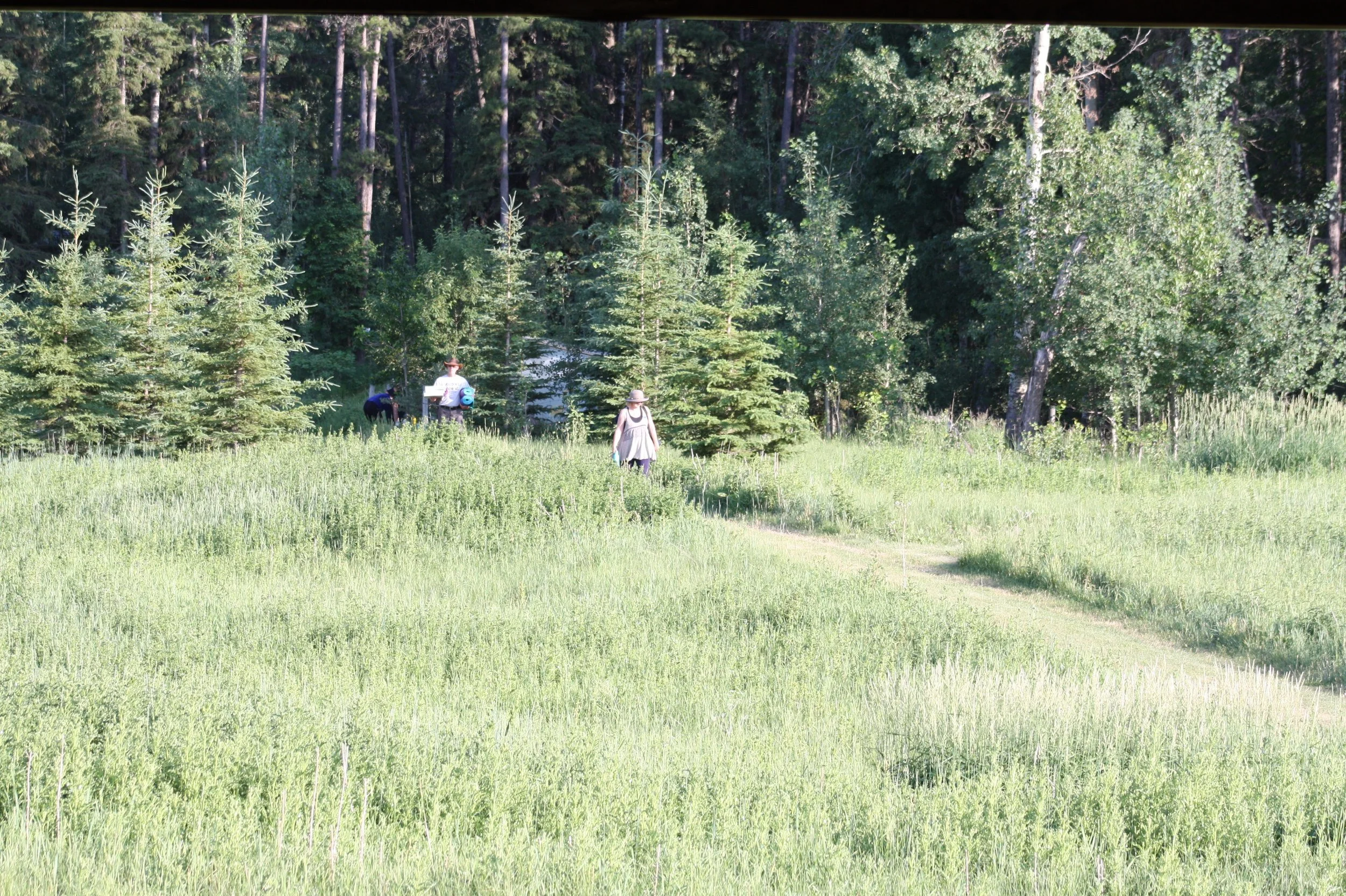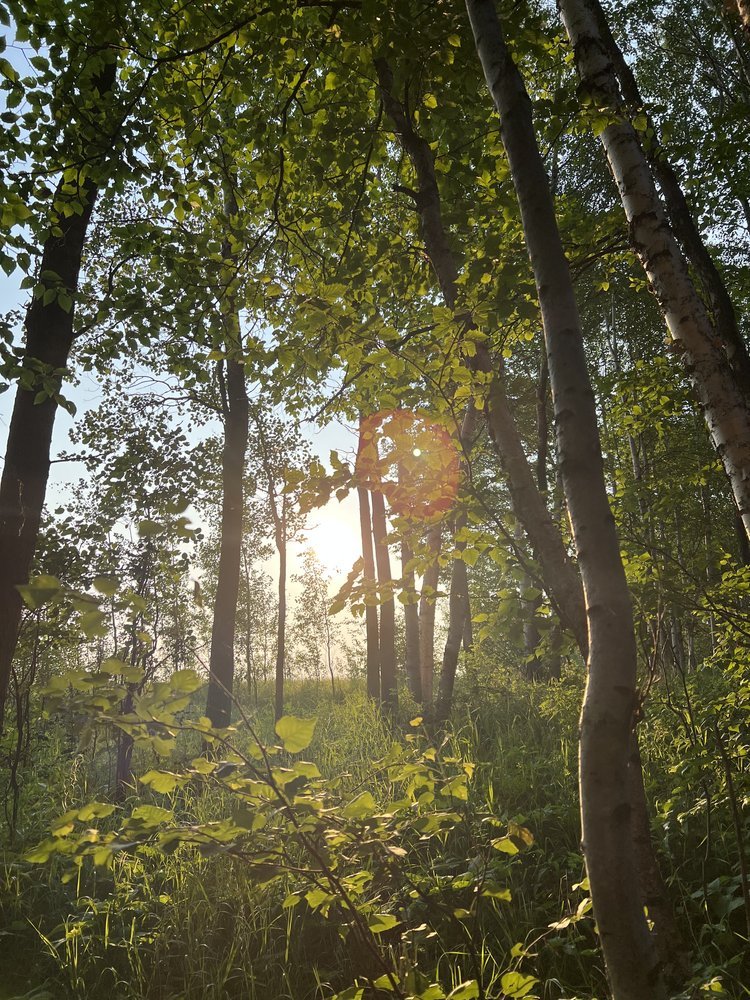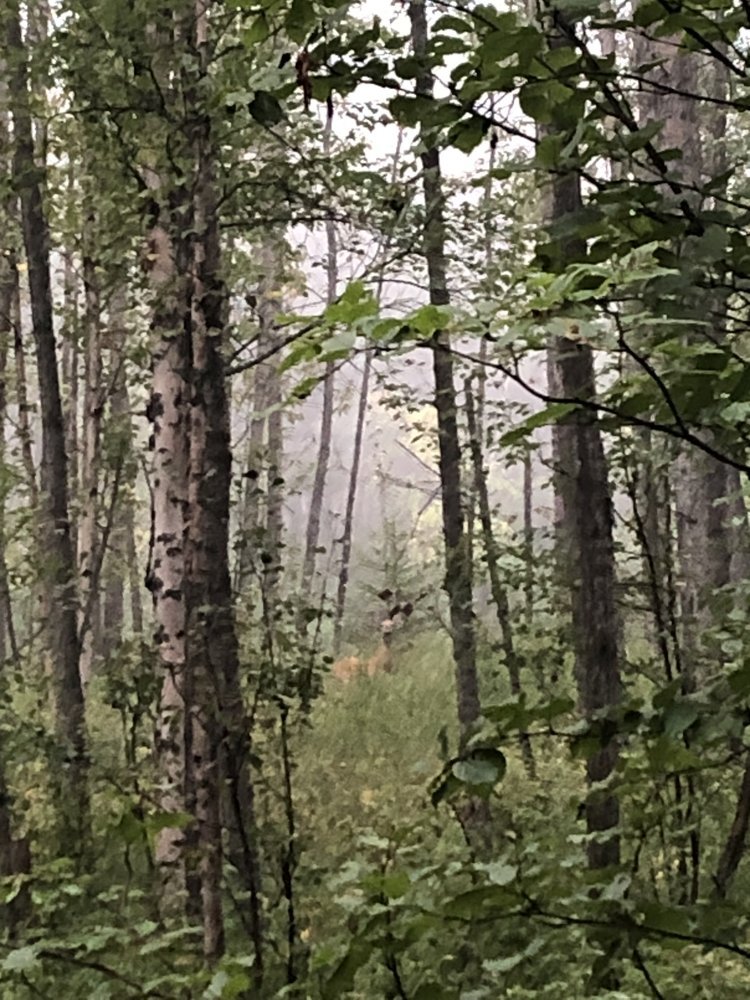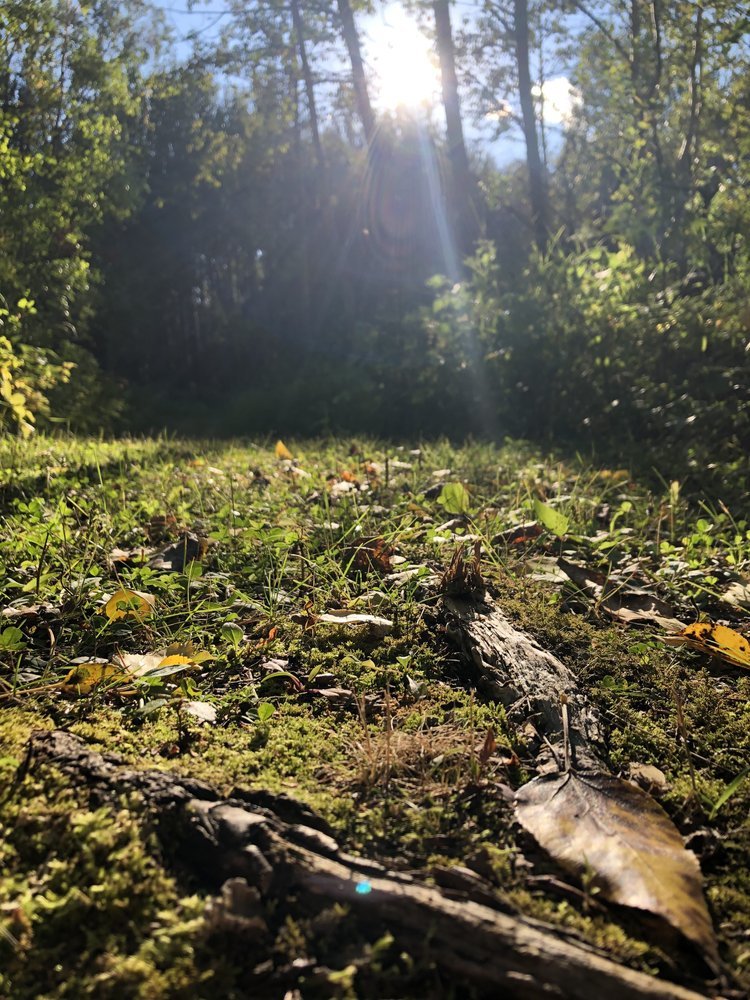Forest Therapy
Feeling stressed? Perhaps some forest bathing is just what you need. Shinrin- yoku in Japanese literally translated means Forest Bathing, and has become a recognized relaxation and stress management activity in Japan. Studies show that walking amongst the trees in forests not only reduces stress, but there are other unseen benefits we receive from our plant friends of the forest.
I remember several years ago, while backpacking 75 km of rugged backcountry on the West Coast Trail of Vancouver island, we met a couple of German biologists on the trail, who were doing research at UBC. Sitting around a campfire at night in the wilderness, they talked about the studies they were doing regarding the pine beetle infestations that were of great concern at that time. I found their accounts of trees communicating with each other, highly intriguing. They found that when one tree was under siege of the pine beetles, trees in the vicinity began upping their defenses in readiness for the impending attack. I never forgot that conversation, being an avid nature enthusiast, and years later, stumbling across a short article in a yoga magazine regarding “Forest Bathing” prompted me to investigate further. The results of my investigation intrigued me once again.
Dr. Qing Li in Tokyo, who is currently the president of the Japanese Society of Forest Medicine, has conducted a number of experiments to test the effects immersing ourselves in nature amongst the trees, has on our moods, stress levels and immune system. Not only do studies regarding moods, show a decrease in anxiety, anger and depression, but also and increase in the overall vigor of the participants.
However, one of the most interesting facts I found while investigating various studies that were conducted, is the impact quality time amongst the trees has on our immune system. Scientists have long known that trees and many other plants emit something called Phytoncides that work by defending against various bacteria, fungi and insects that affect plants. The word Phytoncides was actually coined in 1937 by Dr. Boris P. Tokin ((1900-1984), a Russian biochemist from Leningrad University. Studies also show that these substances in the air containing phytoncide, wood essential oils, α-pinene and limonene, which are antimicrobial volatile organic compounds emitted from trees, also have an impact on viruses and bacteria & the diseases that affect mankind.
More recent studies are showing the effects of walking amongst the trees, breathing in the air, and an increase in immune function amongst humans, showing links to anti- cancer effects on the body. These studies also show a direct link in the increase of lymphocytes, natural killer cells and intracellular anti- cancer proteins in those who walked amongst the trees for just 2-3 days in a row as compared with levels before the walks and also compared with those who did not participate in the walk. They also found that these positive effects remained in the body up to 7 days after the forest walks had ceased.
In fact many scientists go so far as to project that the outbreak of Sars had a deep relationship with the destruction of the forests in the Kuangdong area of China.
Although “Forest Bathing” can be done anywhere you can find a few acres of trees with a decent canopy, larger treed areas obviously offer longer walks amongst the trees, and possibly more benefit from more concentration of trees in the area.
You know that saying “Can’t see the forest for the trees”? Perhaps we are finally waking up to the fact that “there is so much more in the forest than just trees!” Perhaps if we just let ourselves become part of nature, we will see that it has so much more to offer us than can be seen with the naked eye.
So get yourself to a Pure Awareness Retreat, hit the 4 KM of trails and find some appreciation of the wonders that this wonderful earth bestows upon us, as we enjoy the sights, sounds and smells of walking amongst the trees!



